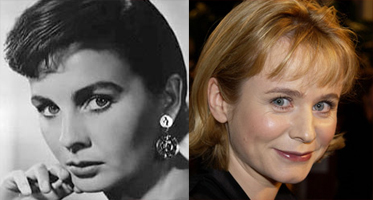Context
I have a love-hate relationship with Stanley Kubrick. A cardinal sin for me is movies that drag. It's a creative choice that I just don't like. As revolutionary as it was when it came out, I find "2001" to be one of the most mind-numbing experiences of my life. On the other hand, "Dr. Strangelove" is one of my favorite movies of all time. "A Clockwork Orange" and the first half of "Full Metal Jacket" are right up there as well. He has a taste for the weird and fucked up, but he always deals with the bizarre with the utmost respect and never for cheap laughs. Unfortunately, the pacing has kept me from liking even his universally loved films, like "The Shining."
Come to think of it, I also have a love-hate relationship with the epics and period pieces. No matter how well done, they always come across as bloated and pompous. It always seems like a filmmaker or an actor is trying way too hard to impress us with scope. Honesty is a big thing for me, and as much as a writer can put honest emotion into a story from long, long ago, does he really know what it was like to live back then? I think the advantage of films such as these are amazing set pieces a smaller film simply couldn't afford. That giant crane shot over the field of victims in "Gone With the Wind" really hit me. The chariot race in "Ben-Hur" was spectacular. Even the ship tearing apart in "Titanic" was pretty cool. Overall, though, these classic examples of epic cinema, I found to be just sort of eh.
The Film
Putting these together, I should not have loved "Spartacus" as much as I did. From the moment the slaves rose up and freed themselves, the movie had me. The steady pace allowed me to stay genuinely enthralled with this merry band's ultimately doomed attempt at freedom. The huge battle scene toward the end would be the template for doomed battles to come. Up until that point, Spartacus had out-thought the Roman army. His clever battle strategy makes you believe the slaves will succeed, right up to the moment they fail. Going in, the only thing I knew about the movie was the "I am Spartacus" scene, and even though I knew it was coming, I welled up a little.
The cast was a who's who of actors I always sort of liked but never really got to see in action. My only Kirk Douglas film before this was "Greedy." My only other Lawrence Olivier film was "Rebecca," and my only other Tony Curtis film was "Some Like It Hot." For all three, this is the movie I will remember them for. As this was a movie about fighting dudes, the female cast was lacking, but I spent the entire movie trying to remember what I knew Jean Simmons from. Turns out, she looks shockingly similar to Emily Watson.

"Spartacus" was not included in the 1997 AFI Top 100, and I'm really glad it made it onto the updated one. I never would have seen it otherwise. Kubrick is one of the more represented directors on the list, alongside Spielberg, Capra, and the great Hitchcock. This movie illustrates for me more clearly than, say, "Eyes Wide Shut" that Kubrick had a brilliant understanding of filmmaking as a whole, and even if he had spent his career making nothing but movies the studio wanted him to make, he still would have cranked out some of the best films of all time.
Kris's Response
No comments:
Post a Comment
Friends, please sign your comments, so I know it's you. I will most likely delete Anonymous comments.